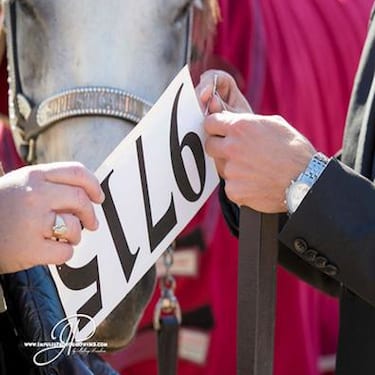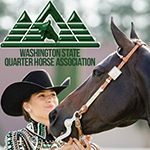In the ninth article of Stephanie Lynn’s series, “10 Steps to the Winner’s Circle”, Lynn discusses how being prepared is crucial to being successful in the show pen.
It always sounds so obvious, but lack of preparation is one of the biggest faults I see in the show ring. Riders often show up late to the cone, reins uneven, with hair tumbling out of their hats, mud on their boots rushing into the pen. Sometimes it is their horse that is unprepared, unsure of the circumstances with sweat marks from a previous work or thrown into circumstances for which they have no basis of understanding.
Being prepared starts at home with time in the saddle training, planning and making yourself ready for a great ride. It also means having the proper equipment for the task at hand. This includes wearing appropriate footwear and clothing perhaps even a safety helmet. I had an instructor that couldn’t stand it when I wore sunglasses to school over the jumps. She knew that I did not need glasses to see. The instructor perceived the sunglasses as my attempt to look cool. She literally would chastise me for wearing them because she felt they inhibited my ability to see clearly. The same goes for head phones, chewing gum and anything else that distracts you from your job – directing and protecting your horse.
Riders must always be in a state of readiness when working with their horse. They have to be prepared mentally for all the surprises that could occur and be able to handle them when they arise. This means having well thought out plan with various approaches to different scenarios that could arise. Remember, you, the rider, are the team leader. If you abandon the horse, he or she will take over and the results may be disappointing.
Physically both you and your horse must be prepared for the ride ahead whether in or out of competition. It is not reasonable to expect the horse to perform at a peak level when ridden only once a week. Nor is it reasonable for you to expect yourself to perform well if you are tired, stressed or out of shape. Being prepared means respecting the sport enough to put in the time to make sure that you and your partner are both fit enough to handle the job. You put your horse through his paces conditioning and training, make yourself get to the gym or take a walk every day. Be in the best shape you can be for your horse.
Understanding your limits is part of being prepared too. It is just as important to know when you should not ride, when you should quit as it is to know when you should ask for more. Knowledge comes only from experience – practice and preparedness. With proper preparation, you will have enough tools in your tool belt to handle any situation that arises.
“By failing to prepare you are preparing to fail.”
Ben Franklin
About Stephanie Lynn: Professional Horseman Stephanie Lynn coached her first AQHA World Champion in 1988. She has since coached, trained and shown World, Congress and Honor Roll horses across disciplines. She is a judge for AQHA, NSBA and APHA and has judged World Championship shows for each association. Most recently, Stephanie is the author of The Good Rider Series and A Lifetime Affair: Lessons Learned Living My Passion. The Good Rider Series is a library of resource material that is both practical and applicable in the barn and show ring for riders. Stephanie can always be reached through her website: http://www.stephanielynn.net to answer your questions, schedule a clinic or lesson.







